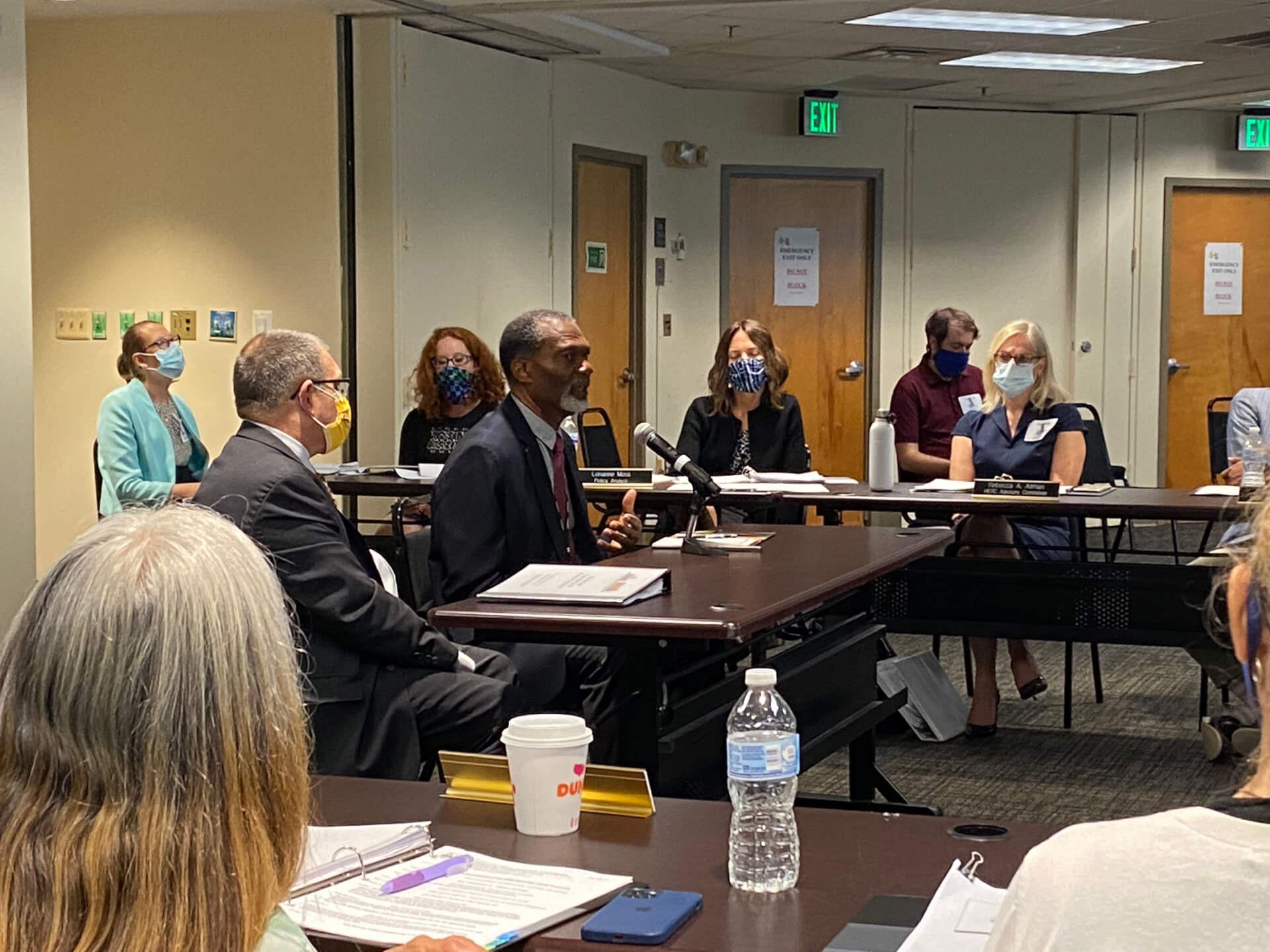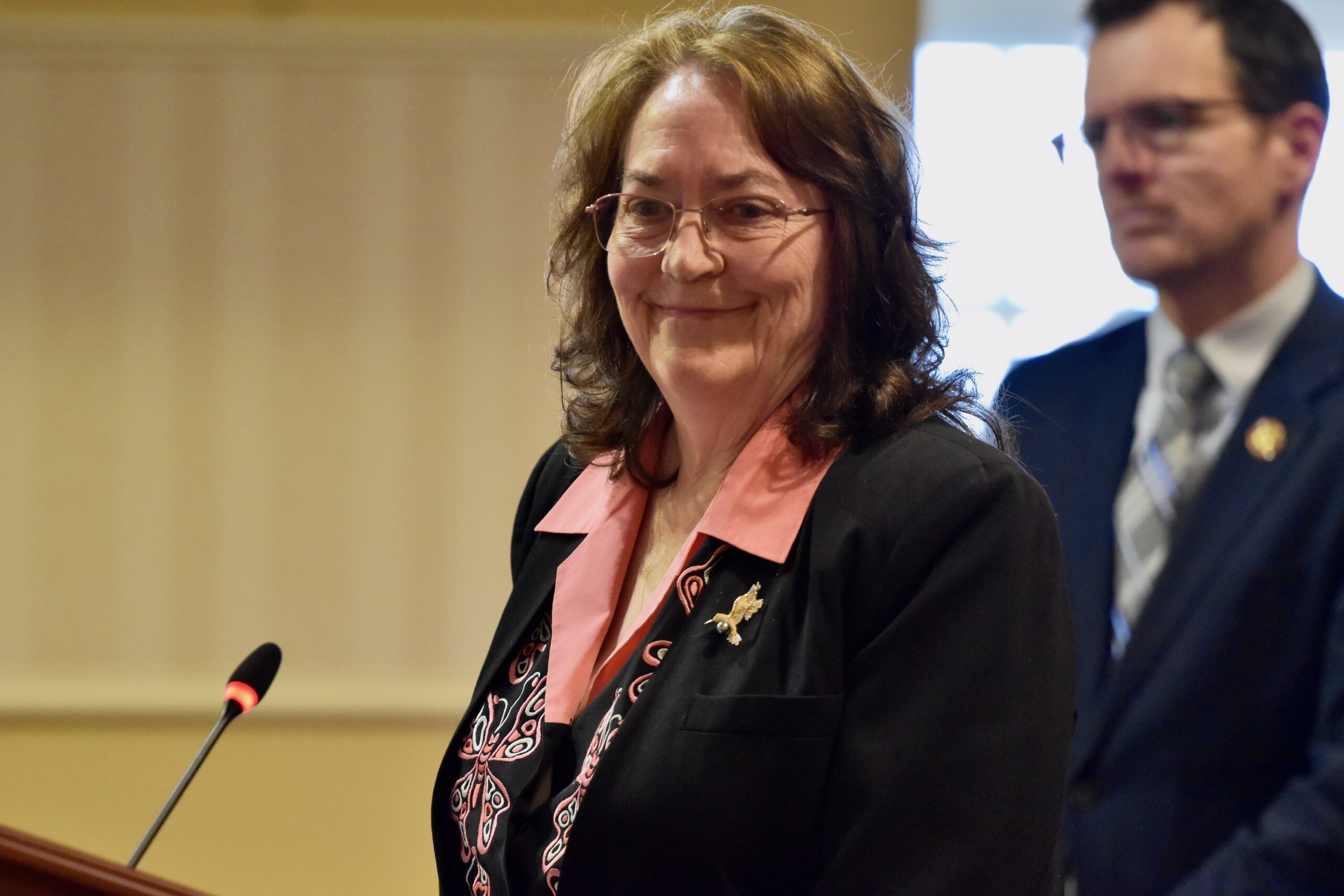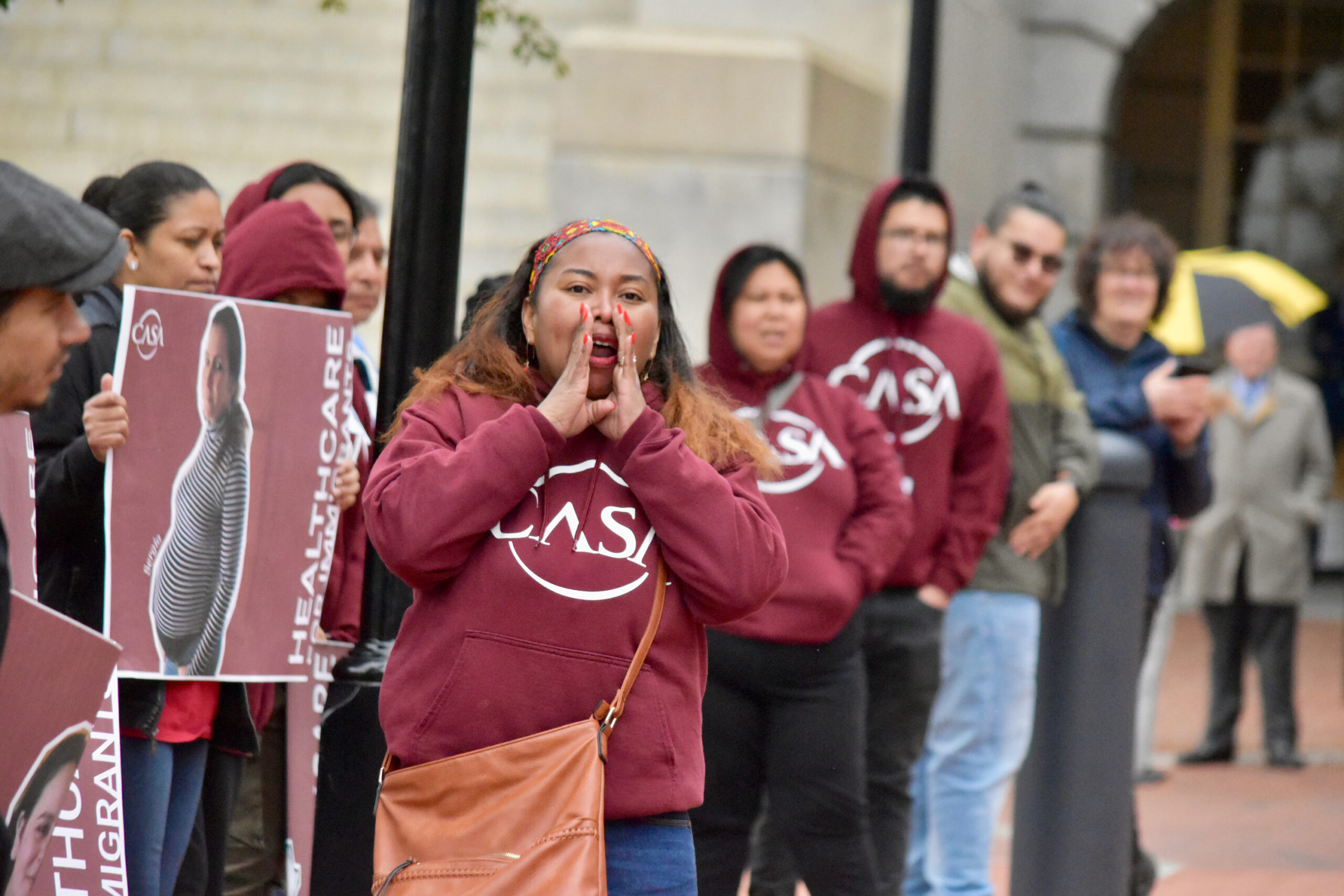Can Targeted Grants Improve the Health of Whole Neighborhoods? A Maryland Committee is Working on It

A $60 million effort to squash health disparities in Maryland’s hardest-hit neighborhoods took a step forward on Wednesday.
The Health Equity Resource Advisory Committee, a panel of health policy experts and state officials that will allocate grant funding to improve the overall health of small communities across the state, met for the first time in Crownsville.
Grants will be focused on improving access to primary care services, reducing hospital admissions and incentivizing health care practitioners to work in underserved areas. The communities targeted for assistance — which would be called Health Equity Resource Communities — should be small enough to allow for the grants to have a significant impact on improving health outcomes, according to the bill.
“The overall health of Maryland is dependent on ensuring that all Marylanders have access to the best health care and that their critical health needs are met,” Maryland Department of Health Secretary Dennis R. Schrader said during the meeting Wednesday.
The committee was created under an emergency bill sponsored by Sen. Antonio Hayes (D-Baltimore City) and Del. Erek L. Barron (D-Prince George’s) during the 2021 legislative session.
According to Michelle Spencer, the associate director of the Bloomberg American Health Initiative at Johns Hopkins Bloomberg School of Public Health, minority health disparities cost the state between $1 billion and $2 billion in direct medical costs every year.
Hayes said that, when compared to white people, Black Marylanders are 20% more likely to die of heart disease, 35% more likely to die of a stroke and twice as likely to die of diabetes.
“Residents of Maryland have disparate access to healthcare services, which has led to a stark inequity in health outcomes,” he said.
The Health Equity Resource Community Reserve Fund will be established with $45 million from the Maryland Health Benefit Exchange, and an additional $14 million from the RELIEF Act state stimulus program. This funding will be going to “Pathways to Health Equity Grants” which will begin to be administered in 2022, and Health Equity Resources Commission grants that will be doled out in 2023.
The advisory committee will do the bulk of its early work in three subcommittees, one of which is charged with creating the grant applications.
According to Mark Luckner, the executive director of the Maryland Community Health Resources Commission, the request for proposals is set to go live in mid-October. Grant decisions will be made in late January 2022.
Luckner emphasized the importance of informing grantees that their progress will be tracked over time.
“There’s a balancing act to provide both accountability, because these are public funds, and also technical assistance,” he said.
Aside from providing grant funding, the committee is also responsible for program evaluation and data collection.
Since the goal of the committee is to reduce health disparities experienced by Black, Brown and disabled communities, both Hayes and Barron stressed the importance of ensuring that impacted communities have a seat at the table throughout this process.
“We should always be looking around the room — or looking around the Zoom, whatever the case may be — to make sure that we have all the right people at the table to make the best decisions at every level as possible,” said Barron.
Dr. Noel Brathwaite, the director of the Office of Minority Health and Health Disparities, agreed that the success of the committee lies in collaboration with communities.
“The question is: When we look back in 2025 to 2021, will we have achieved a significant reduction in health disparities? Will we have achieved a significant achievement of health equity?” Brathwaite asked. “ The answer, I think, resides more in a collaborative and coordinated approach.”



 Creative Commons Attribution
Creative Commons Attribution